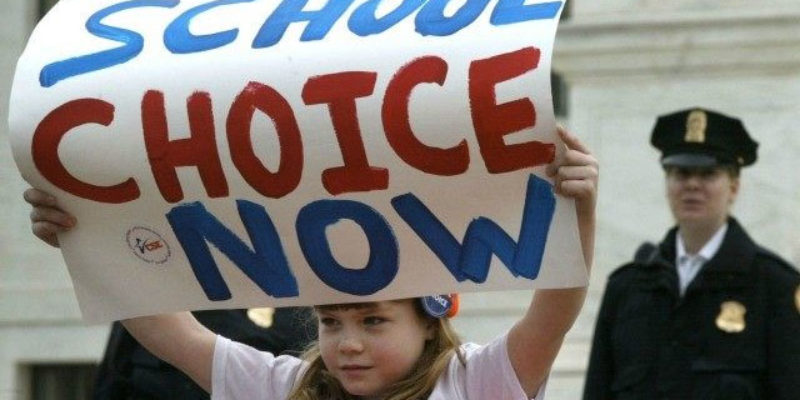All the way back to the administration of Governor Bobby Jindal, Louisiana has viewed private-school choice statewide as very positive public policy that needed to be enshrined in state law to improve the quality of education of poor and minority children, and to provide the same educational choice enjoyed by children from more affluent families. However, Gov. John Bel Edwards has obstructed school choice during his two terms as governor.
“Last year he vetoed two bills that would have allowed all families with children who weren’t reading at grade level or had special needs to take their state-funded education dollars to schools of their choice.” (C, DeAngelis, Wall Street Journal, Oct. 19, 2023). WSJ continues “this year the Republican-controlled state House passed an even more expansive school choice proposal—one that would be available to all families, regardless of need—by a 61-37 vote. Although the bill had bipartisan support, it takes two thirds of each legislative chamber to override a veto.”
However, on Oct. 14, Louisiana elected a new governor, Jeff Landry, who has always been a proponent of school choice. In fact, Mr. Landry’s campaign website says that “no child should be trapped in a failing school” and that “if a school cannot adequately educate its students, those students should be given the ability to obtain an education that is worthy of the commitment we have made to them.”
Further, additional candidates supporting school choice also were elected to the Legislature this year. “We now have a supermajority of school choice supporters in the Senate and are only a couple votes shy of a supermajority in the House” states Kelli Bottger of Louisiana Kids Matter. And now there is a governor-elect who will sign such legislation into law.
Such a development would provide so much hope for so many families across Louisiana—especially poor and minority families—whose children have been trapped in failing schools.
In fact, there has been a desire to enact school choice policy in Louisiana since even before Jindal, but the powerful public-school education unions have always stood in the way.
Advertisement
However, as outlined by The Heritage Foundation, there is a new school-choice advocacy strategy that is yielding huge new gains.
“The solution to this political challenge is to help inform and organize families in suburban and rural areas who are concerned about the kinds of values their children are being taught in public schools. Radical academic content and school practices are not confined to large urban school districts on the coasts. Even in small towns across America’s heartland, public-school staffs have become emboldened to impose values on students that are strongly at odds with those preferred by parents. Whether it’s placing biological males in the girls’ bathrooms and locker rooms, calling children by pronouns that differ from their sex behind parents’ backs, or teaching a radical and ahistorical ideology that condemns America as irredeemably racist and divides people into “oppressors” and “the oppressed,” public schools are breaking faith with the families they are supposed to serve.” [Emphasis added]. (The Heritage Foundation, J. Greene, J. Bedrick, Feb. 2023).
Well, the 2020 pandemic forced students to learn online from home, thereby allowing their parents to see the often-radical, inappropriate things they were being taught. Now, change is coming. “Legislators facing organized groups of parents who want alternatives to the values promoted by public schools can be peeled away from the grip of teachers’ unions and rural superintendents.” (Heritage).
The Cato Institute also took a comprehensive look at the school choice issue and concluded this:
“People make choices based on what they perceive as the best match for their children, and those choices create incentives for individual schools to improve. The supply of quality schools then improves because families choose educational products that best fit their needs. Regardless of which mechanism is the most important, ESA (education savings account) programs that are accessible to all children, regardless of incomes, abilities, or other background characteristics, offer the best opportunity for a robust market to thrive where the supply of quality schools can increase and families are able to find the best educational match.” (Cato Journal, Winter, 2018).
School choice must be given a legitimate chance to flourish because the evidence is overwhelming that it will greatly increase positive student outcomes while affording parents control over the education of their children. Regardless of social or economic background, we must end the “soft bigotry of low expectations” for every student in Louisiana.
Advertisement
Advertisement

